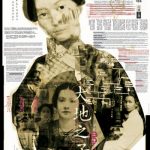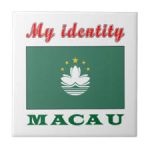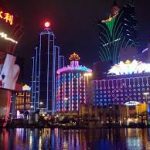Part 1
 The New Year (2016) provides an opportunity to review recent developments in China that are worth noting. Premier Xi Jinping continues a series of purges of corrupt party officials, as he asserts territorial rights in the South China Sea, and devalues the Yuan. Some of these initiatives have not only effected the world economy, but had impacts on China’s two Special Administrative Regions. Hong Kong remains politically uncertain, due in part to the 2014 “Occupy” movement for democracy and the recent disappearance of five outspoken bookshop owners on the mainland. Meanwhile, Macau is feeling the effects of China’s anti-corruption policies through the loss of gaming revenue for the third year in a row, which focused on high-rollers from the mainland.* While Macau’s Chief Executive begins implementing Beijing’s order to promote “adequate diversification” of the economy and remain a platform for Portuguese-speaking countries, local editorials warn of a recession.[1]
The New Year (2016) provides an opportunity to review recent developments in China that are worth noting. Premier Xi Jinping continues a series of purges of corrupt party officials, as he asserts territorial rights in the South China Sea, and devalues the Yuan. Some of these initiatives have not only effected the world economy, but had impacts on China’s two Special Administrative Regions. Hong Kong remains politically uncertain, due in part to the 2014 “Occupy” movement for democracy and the recent disappearance of five outspoken bookshop owners on the mainland. Meanwhile, Macau is feeling the effects of China’s anti-corruption policies through the loss of gaming revenue for the third year in a row, which focused on high-rollers from the mainland.* While Macau’s Chief Executive begins implementing Beijing’s order to promote “adequate diversification” of the economy and remain a platform for Portuguese-speaking countries, local editorials warn of a recession.[1]
In Macau, however, a different kind of struggle is also taking place: A search for identity. The main participants are the leaders of the Macanese community, who are seeking to define the community’s role in the future and preserve its contributions to Macau’s history. Both goals are commendable and should be widely supported. However, the inability of Macanese leaders since the 1999 handover to come to any definitive conclusions, and their apparent unwillingness to associate discussions of identity to Macau’s current economic situation, indicates a serious level of detachment. This is far from an overstatement. The lack of action could have long term repercussions on the Macanese relationship to China, and as well as jeopardize China’s ability to continue using Macau as a gateway for commerce. For as long as China depends on Macau for cultural and business connections, it will be up to Macanese locally and in the diaspora to follow through with tangible assistance that can be quantified. In a worst case scenario, the inability of Macanese to develop a program that contributes to Macau’s recovery could lead to the marginalization of the community locally and around the world, and ultimately hasten the incorporation of Macanese culture into the Chinese mainstream. A lack of action may no longer be acceptable.[2]
The Undefined Search for Macanese Identity
 The latest discussions on identity took place in December 2015 during a symposium in Macau organized by the Associacao dos Macaenses (ADM).[3] The organization is led by Miguel Senna Fernandes, an attorney who later in the month was elected president of the Associação Promotora da Instrução dos Macaenses (APIM). APIM is the principal organization that guides and funds the Conselho das Comunidades Macaenses (CCM), the sponsor of twelve expatriate organizations outside Macau, often referred to as the “Macanese Diaspora”. According to press reports, the event was well attended by former Legislative Assembly members, association leaders, academics, business people, journalists, and students. The themes and issues, however, were similar to meetings held in 2012 and 2013: the use of the Portuguese language within the community; the involvement of younger generations; the encouragement of bi- and tri-lingual education; the preservation of an undefined “Macanese Culture”; and the role of Macanese within the larger Chinese dominated society.[4]
The latest discussions on identity took place in December 2015 during a symposium in Macau organized by the Associacao dos Macaenses (ADM).[3] The organization is led by Miguel Senna Fernandes, an attorney who later in the month was elected president of the Associação Promotora da Instrução dos Macaenses (APIM). APIM is the principal organization that guides and funds the Conselho das Comunidades Macaenses (CCM), the sponsor of twelve expatriate organizations outside Macau, often referred to as the “Macanese Diaspora”. According to press reports, the event was well attended by former Legislative Assembly members, association leaders, academics, business people, journalists, and students. The themes and issues, however, were similar to meetings held in 2012 and 2013: the use of the Portuguese language within the community; the involvement of younger generations; the encouragement of bi- and tri-lingual education; the preservation of an undefined “Macanese Culture”; and the role of Macanese within the larger Chinese dominated society.[4]
A new development in 2015 were the results of a survey that provided further evidence of a widening generational gap. The use of Portuguese, for example, accounted for 44% among respondents over 60 years old, while a majority of younger Macanese speak English (31%) or Chinese (25%).[5] Preliminary results also suggest that a majority in the community, including local and expatriate Macanese, identify through cuisine and cultural traditions rather than any specific language.[6] Another issue raised in 2015 was wide use of the Internet and social media[7], which mirrored a 2013 survey conducted independently that found high uses of web-enabled smartphones, Twitter, and Facebook accounts.[8]
At the conclusion of the 2015 event, ADM’s Fernandes summarized that there is a clear need to preserve the culture through food, family traditions, and modern communications, but noted that most of the interest was expressed by Macanese over 50, not by younger people. A woman who attended the symposium suggested that the difficulty was in defining what being Macanese really means.[9] Fernandes acknowledged that language may be only part of Macanese identity, which may be defined by identification with Macau’s culture even for those who were not born there. In the absence of other elements, he concluded that cultural identity comes down to collective memories and physical spaces in Macau that serve as reference points for the community.[10]
Conclusion
 A resolution to questions of Macanese identity is admittedly difficult to achieve given the pressures on Macau and China in the 21st century. Part of the problem may be the existence of “ethnic agendas” that tend to determine the allocation of public resources in Macau, which up to now have been abundant.[11] As a result, many communities are in competition for government support that often obscures wider attention to economic and political issues.[12] On the other hand, the current discussion on identity remains disconnected from local concerns while Macanese associations benefit from government funding fed by gaming. This support is based on the assumption that Macau’s heritage and cultural history, both local assets supporting tourism, should be preserved through the guidance of local Macanese. There is also an expectation by the Chinese government that Macau will remain a business platform for Portuguese-speaking countries, and possibly expand to English-speaking countries where Macanese descendants also live.[13] Unfortunately, little progress is being made on either front.
A resolution to questions of Macanese identity is admittedly difficult to achieve given the pressures on Macau and China in the 21st century. Part of the problem may be the existence of “ethnic agendas” that tend to determine the allocation of public resources in Macau, which up to now have been abundant.[11] As a result, many communities are in competition for government support that often obscures wider attention to economic and political issues.[12] On the other hand, the current discussion on identity remains disconnected from local concerns while Macanese associations benefit from government funding fed by gaming. This support is based on the assumption that Macau’s heritage and cultural history, both local assets supporting tourism, should be preserved through the guidance of local Macanese. There is also an expectation by the Chinese government that Macau will remain a business platform for Portuguese-speaking countries, and possibly expand to English-speaking countries where Macanese descendants also live.[13] Unfortunately, little progress is being made on either front.
Therein lays the dilemma facing the Macanese community in Macau and the Macanese Diaspora in general. As annual discussions of Macanese identity continue, the perception inside and outside Macau is that the community is not addressing real world needs, which include preserving Macanese culture and defining their roles in Macau’s new economy.
Notes:
* Information provided by the MacauHub, the government’s newsletter: http://www.macauhub.com.mo/en/2016/02/12/think-big-macao-unveils-five-year-plan-for-the-first-time/
[1] RECESSÃO AINDA EM 2016 E 2017?, por ALBANO MARTINS, 8 JAN, 2016, Jornal Tribuna de Macau
[2] In an interview with the newspaper Hoje Macau (Dec. 7 2015), Professor George Wei, Director of the Department of History at the University of Macau, suggests that the historic roles of Portuguese and Macanese as traders working in Macau, Guangdong and Zhuhai in the 19th century provides a model for the future.
[3] Hoje Macau, Dec. 7, 2015
[4] Ponto Final, Oct. 29, 2012, and Dec. 2, 2013
[5] Ponto Final, Dec. 7, 2015
[6] Ponto Final, Dec. 7, 2015
[7] Ponto Final, Dec. 3, 2013
[8] The survey found 40 % used web-enabled Smartphones, 20% had Twitter accounts, and 68% were on Facebook. FarEastCurrents.com, Oct. 26, 2013
[9] Ponto Final, Dec. 7, 2015
[10] Ponto Final, Dec. 7, 2015
[11] To the subject of ethnic agendas, see the observations of Aurelio Porfiri, an Italian music teacher who spent seven years in Macau. Ponto Final, Sept. 24, 2015. In an editorial, Porfiri also wrote about identity in Macau. Identidade (Identity) por AURELIO PORFIRI – 2 Dezembro, 2015. The main source of community funding is the Fundacao Macau (Macau Foundation), largely unknown outside Macau, which has supported local non-profit, commercial, and public-private partnerships for several decades. The foundation remains the main support for Macanese associations in Macau and the global diaspora.
[12] Sergio Perez, Associate Director of ADM mentioned the need to “arouse the attention of the media” and highlight the role of the community, which is sometimes forgotten in Macau. Ponto Final, Dec. 11, 2015.
[13] This policy was developed through the Forum for Economic and Commercial Cooperation between China and Portuguese-speaking Countries (FORUM PARA COOPERAÇÃO ECONÓMICA E COMERCIAL ENTRE CHINA E OS PIASES DE LINGUA PORTUGES)http://english.mofcom.gov.cn/article/zt_chinaportuguese/